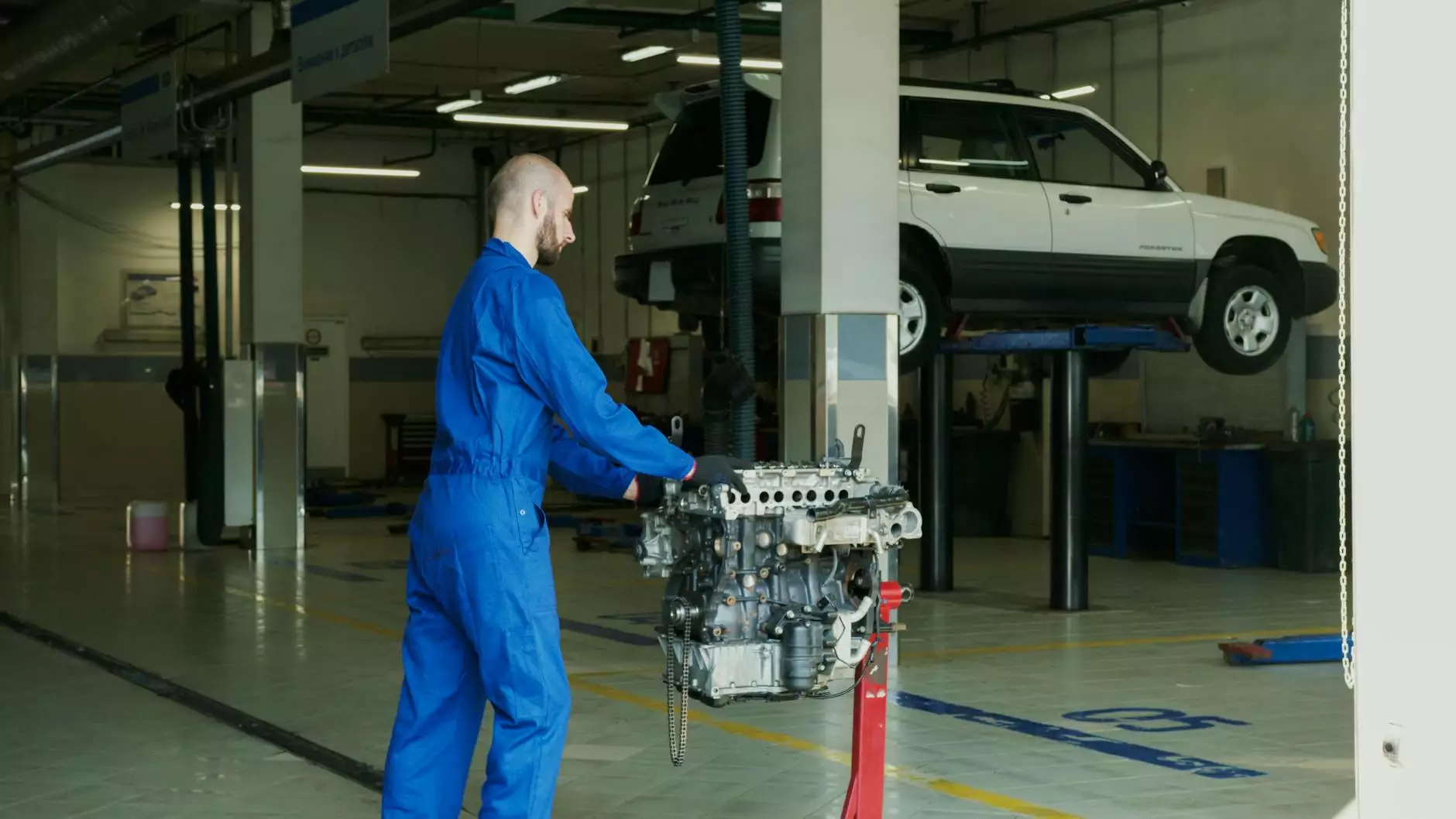The Ultimate Guide to Car Repair: Keeping Your Vehicle in Top Shape

In the world of automobiles, few things are as vital as car repair. Whether it’s a minor tune-up or a major overhaul, understanding the fundamentals of car repair can save you time and money while ensuring the longevity of your vehicle. In this comprehensive guide, we will delve deep into various aspects of car repair, providing you with expert advice and tips to keep your car on the road.
Understanding the Basics of Car Repair
Before diving into the specifics of car repair, it’s crucial to understand what car repair entails. Generally, car repair covers a wide range of services performed on a vehicle to keep it functioning efficiently. This includes:
- Routine Maintenance: Regular services such as oil changes, tire rotations, and fluid checks.
- Engine Repairs: Troubleshooting and fixing engine issues like overheating or poor performance.
- Transmission Repairs: Addressing problems related to gear shifting and transmission fluid leaks.
- Brake Services: Replacing brake pads, rotors, and ensuring overall braking system performance.
- Electrical System Repairs: Fixing issues with the battery, starter, and various sensors.
The Importance of Routine Maintenance
One of the most critical aspects of car repair is routine maintenance. Regular maintenance can prevent minor issues from escalating into major, costly repairs. It is essential to follow the manufacturer’s recommended maintenance schedule, which usually includes:
- Oil Changes: Typically every 3,000 to 7,500 miles depending on the vehicle.
- Fluid Checks: Regularly checking oil, coolant, brake, and transmission fluid levels.
- Tire Maintenance: Rotating tires every 6,000 to 8,000 miles and checking for wear and tear.
- Brake Inspections: Evaluating brake performance every 10,000 to 20,000 miles.
Signs Your Vehicle Needs Immediate Car Repair
Being aware of the signs that your vehicle needs repair can save you from debilitating breakdowns. Look out for the following warning signs:
- Unusual Noises: Any grinding, squealing, or knocking noises can indicate problems.
- Warning Lights: Dashboard warning lights are alerts that your vehicle needs attention.
- Fluid Leaks: Puddles of fluid under your vehicle can signal leaks that need immediate repair.
- Decreased Performance: If your car feels sluggish, it may be time for a tune-up or repair.
DIY vs. Professional Car Repair
Many car owners wonder whether they can perform car repair tasks themselves or if they should seek professional help. Here are some considerations:
When to DIY
Tasks such as changing oil, replacing air filters, and changing a flat tire are often manageable for the average car owner and can save you money. However, it’s crucial to have:
- Basic Tools: A set of essential tools like wrenches, screwdrivers, and jacks.
- Online Resources: Access to tutorials and videos that can guide you through the repair process.
- Safety Knowledge: Understanding safety protocols to avoid accidents while working on your vehicle.
When to Call a Professional
For more complex issues such as transmission repairs or engine overhauls, it’s best to consult a professional mechanic. Professionals have access to specialized tools and knowledge. Look for:
- Certification: Ensure the mechanic has the necessary credentials and experience.
- Warranty: Check if the service comes with a warranty for peace of mind.
- Reputation: Read reviews or ask for referrals to find trustworthy repair shops.
The Role of Technology in Car Repair
As vehicles become increasingly sophisticated, the role of technology in car repair cannot be understated. Modern cars are equipped with advanced systems that require state-of-the-art diagnostic tools to troubleshoot. Some key advancements include:
- Onboard Diagnostics (OBD-II): This system monitors performance and can identify issues via error codes.
- Electronic Control Units (ECUs): These manage various car functions and significantly affect how repairs are approached.
- Telematics: This technology helps track vehicle performance and can alert owners to maintenance needs.
Best Practices for Effective Car Repair
For effective car repair, consider the following best practices:
- Keep Records: Maintain a log of all repairs and maintenance work. This not only helps with future repairs but also boosts resale value.
- Stay Informed: Research your vehicle model and its common issues. This knowledge can be invaluable in spotting problems early.
- Use Quality Parts: When conducting repairs, always choose high-quality or OEM (Original Equipment Manufacturer) parts.
- Follow Safety Protocols: Always prioritize safety when working on or near vehicles. Use proper gear and equipment.
The Benefits of Regular Car Repair
Regular car repair brings various benefits that extend beyond just keeping your vehicle running smoothly:
- Increased Safety: Regular maintenance reduces the risk of breakdowns and accidents.
- Improved Efficiency: Well-maintained vehicles typically have better fuel efficiency.
- Higher Resale Value: A well-documented maintenance history can enhance your car's resale value.
- Peace of Mind: Knowing your vehicle is in good condition allows for stress-free driving.
Conclusion
Understanding the intricate details of car repair is essential for every vehicle owner. By adhering to routine maintenance, recognizing when professional assistance is required, and leveraging technology, you can ensure a long and healthy life for your vehicle. Remember, your car is not just a mode of transport; it’s an investment. Taking care of it will pay dividends in both safety and financial savings.
For those in need of reliable transportation solutions, consider exploring the offerings at Yahmarentacar. Whether you're looking for a car rental for a day or a truck rental for your moving needs, they provide excellent service and a fleet that can cater to your requirements.









